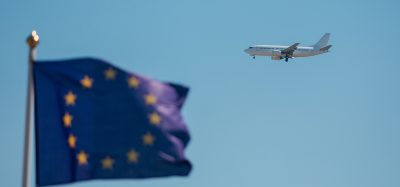IATA criticises German passenger tax; says tax will weaken German economy and decarbonisation
- Like
- Digg
- Del
- Tumblr
- VKontakte
- Buffer
- Love This
- Odnoklassniki
- Meneame
- Blogger
- Amazon
- Yahoo Mail
- Gmail
- AOL
- Newsvine
- HackerNews
- Evernote
- MySpace
- Mail.ru
- Viadeo
- Line
- Comments
- Yummly
- SMS
- Viber
- Telegram
- Subscribe
- Skype
- Facebook Messenger
- Kakao
- LiveJournal
- Yammer
- Edgar
- Fintel
- Mix
- Instapaper
- Copy Link
Posted: 6 May 2024 | International Airport Review | No comments yet
The new tax will make Germany less competitive in key economic areas such as exports, tourism, and jobs and it will further affect Germany’s air transport recovery from the pandemic.


Taxes will affect Germany’s air transport recovery from the pandemic, which is one of the slowest in the EU.
The International Air Transport Association (IATA) have criticised the decision made to increase German aviation taxes, stating that by doing so, it will weaken the German economy and damage aviation’s capacity to decarbonise.
On 1 May 2024, German taxes on flying increased by 19% to between EUR 15.53 and EUR 70.83 per passenger, depending on the route. As a consequence the tax will make Germany less competitive in key economic areas such as exports, tourism, and jobs and it will further affect Germany’s air transport recovery from the pandemic. Germany’s recovery is one of the slowest in the EU with international passenger numbers, for example, at still 20% below pre-pandemic levels.
“When Germany’s economic performance is anaemic at best, denting its competitiveness with more taxes on aviation is policy madness,” said Willie Walsh, IATA’s Director General. “The government should be prioritising measures to improve Germany’s competitive position and encouraging trade and travel. Instead, they have gone for a short-term cash-grab which can only damage the economy’s long-term growth.”
IATA also warned that the tax increase will hamper the industry’s efforts to decarbonise. Aviation has a goal of reaching net-zero CO2 emissions by 2050 and sustainable aviation fuels (SAF) are vital to this effort. The German government coalition agreement originally stated that revenues from aviation taxes would directly fund production of SAF, but this commitment has been broken. In addition, weakening the German air transport industry with this tax makes it harder for airlines to invest in SAF, in a more fuel-efficient fleet and other decarbonisation efforts. Furthermore, the German government appears sympathetic to the European Taxation Directive which would add a tax on jet fuel.
“The German government appears to have an unhealthy obsession with aviation taxes. On top of increasing the passenger tax, it is also in favor of a European jet fuel tax which will make it even more expensive to do business in Germany or for families to go on holiday. Our survey of air travelers in Germany shows deep skepticism about government claims for ‘green taxes’. 75% agreed with the statement “Taxation is not the way to make aviation sustainable” and 72% agreed that “Green taxes are just government greenwashing”. Time and again, we see taxation that was supposed to help the industry decarbonise be stolen and then lost in the general budget. And money taken out of the industry means that it has less money to invest in other decarbonisation measures,” said Walsh.

















